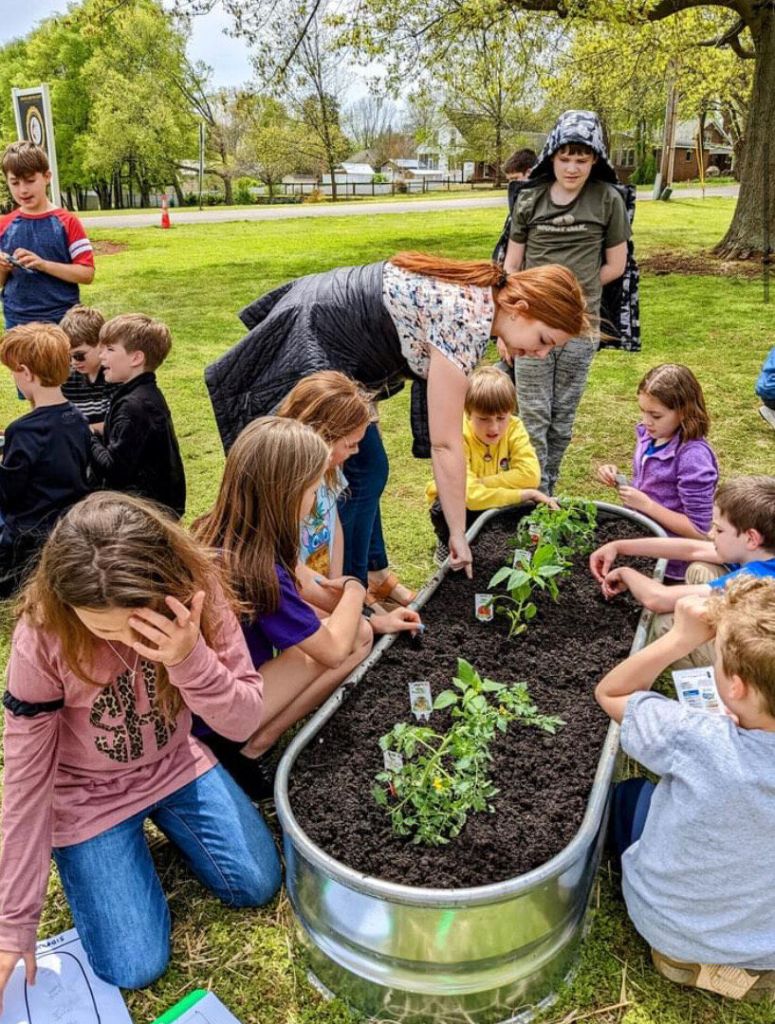Local elementary students participate in experiential learning
Published 12:00 pm Thursday, May 12, 2022

- Students at Athens Renaissance work in garden
Students at Athens Renaissance, the SPARK Academy, the iAcademy and HEART have spent the semester learning how to tend to and maintain various types of gardens.
“I try and keep it going year-round, which, of course, it’s hard in the winter. As soon as it warms up, we go out there. They pull the weeds and prep it and get it ready, because it’s very important for them to understand the work that goes into it. So, we have them pull the weeds and get it prepped. Then, they plant and then we have them come up over the summer, if their parents would like them to come, and help maintain over the summer. Then, when they come back in the fall, they help maintain then too,” said Diane Trout, a teacher at HEART.
Trending
At Athens Renaissance, this is the first year students are participating in this project-based learning unit.
“This is this is our first year. We started it as a PBL, so a project based learning unit, in the beginning of May. We kind of started it at the tail end of school, but it should be good and ready for the kids to dig some stuff up and harvest whenever they get back into school and will really go full blown once they start back in August. So, that should be really good,” said Blaire Baxter, a teacher with Athens Renaissance. “Ours isn’t too terribly large just yet, so we only have about five planters. I had to make sure that they were a certain height, because we have different kids with different ranges of ability and, of course, we’re K through five over here, so, you know, a bunch of different heights.”
Trout encourages students to have an appreciation for healthy foods and farmers while learning about companion planting.
“I hope they gain an appreciation for what the farmers do and also an appreciation for healthy foods, especially by the time they do their companion planting in second grade. That’s the point of companion planting in second grade, is to learn what foods grow together easily, and they learn about pollination and just an appreciation for the way plants grow,” said Trout.
Students are given the opportunity to research what types of plants go best together when planted in a garden, and then choose what plants they want to raise.
“They get to research what they get to grow, so they get a choice. So, for companion planting, they learn about which plants grow easily together. So, for example, one class this year planted radish, lettuce and peas together, because, after their research, they learned that radishes help deter pests from lettuce plants, aphids that can be attracted to lettuce. So, it’s actually going really well. and then another class picked cucumbers, sunflowers and pole beans, because the cucumbers will grow tall, the pole beans will trellis around the sunflowers and the sunflowers will provide shade for the cucumbers. So, it all works really well together,” said Trout.
Trending
At Athens Renaissance, Baxter’s students also have the opportunity to learn about companion planting and utilize research to grow their gardens.
“We talked about companion planting, talked about the different sunlight needs. They measured the depth and how deep they needed to plant certain plants. Companion planting is which plants go better with each other, that sort of thing. We talked about soil — the layers, the different densities, the consistencies of the soil layers, how it needed to best work with the root systems of the plants,” said Baxter. “We’ve been doing observations already, even just in the few weeks that we’ve already had the garden, you know, they’ve been able to draw pictures, count flowers and do a little hypothesis action; you know, how long do they think that the fruit is going to be until it ripens? That kind of thing.”





